Publications
Articles, publications, books, tools and multimedia features from the U.S. Institute of Peace provide the latest news, analysis, research findings, practitioner guides and reports, all related to the conflict zones and issues that are at the center of the Institute’s work to prevent and reduce violent conflict.

Andrew Cheatham on the Importance of the U.N. General Assembly
Despite geopolitical tensions, the U.N. General Assembly remains important for cooperation on urgent global challenges like climate change, says USIP’s Andrew Cheatham: “It’s within the bureaucracy of the United Nations that a lot of countries can show leadership … If we didn’t have the U.N., I think we’d have to build it.”
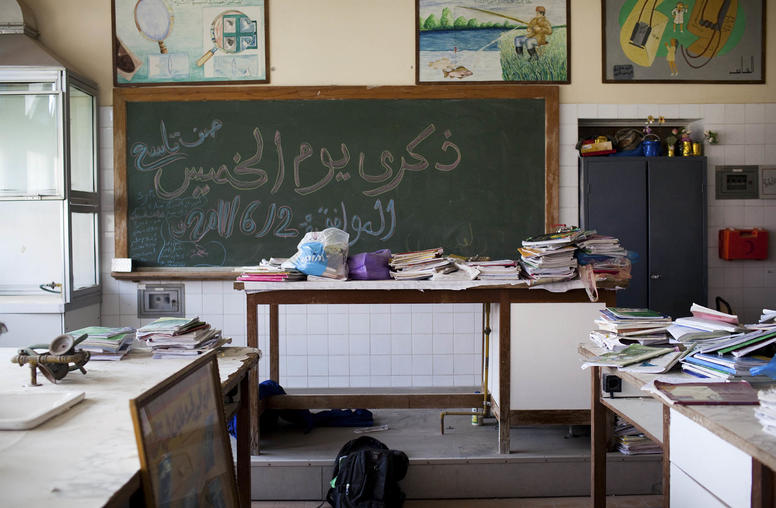
How Teaching Tolerance Can Promote Peace
Instability, conflict and human rights abuses are daily occurrences worldwide, often driven by hostility based on religion, belief or ethnicity. As policymakers look for ways to get upstream of potential human rights abuses, tolerance education can play a crucial role in preparing students to live in peace in our increasingly diverse world. The Transforming Education Summit, to be convened by U.N. Secretary-General António Guterres on September 16-19, provides an important opportunity to elevate tolerance education into the global education movement.
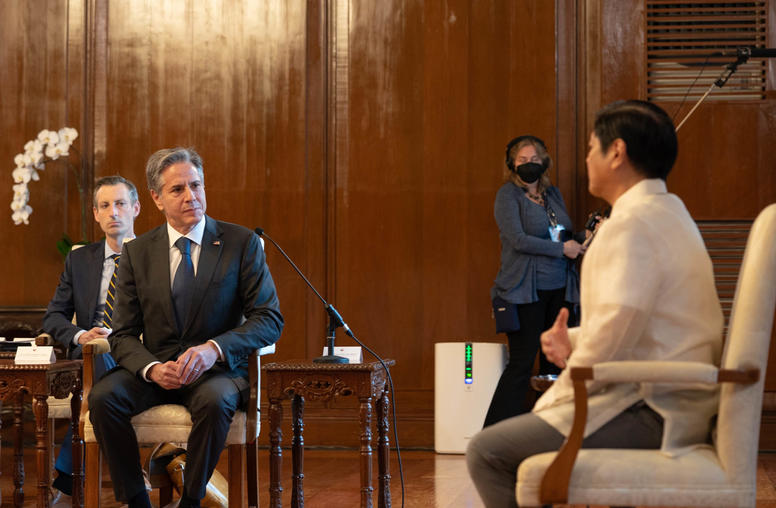
Bangsamoro Peace and the U.S.-Philippines Alliance
The election in May of Ferdinand Marcos Jr. as the 17th president of the Philippines presents an opportunity to reset U.S.-Philippines relations after six rocky years while President Rodrigo Duterte held the office. After Marcos’s sweeping election victory, President Biden called to congratulate him and then dispatched a series of U.S. officials to Manila, including Secretary of State Antony Blinken. Any concerns that the Marcos family’s corruption and lingering legal issues in the United States would hold up relations have been pushed aside due to the enormous interests the United States has in a functioning U.S.-Philippines alliance.
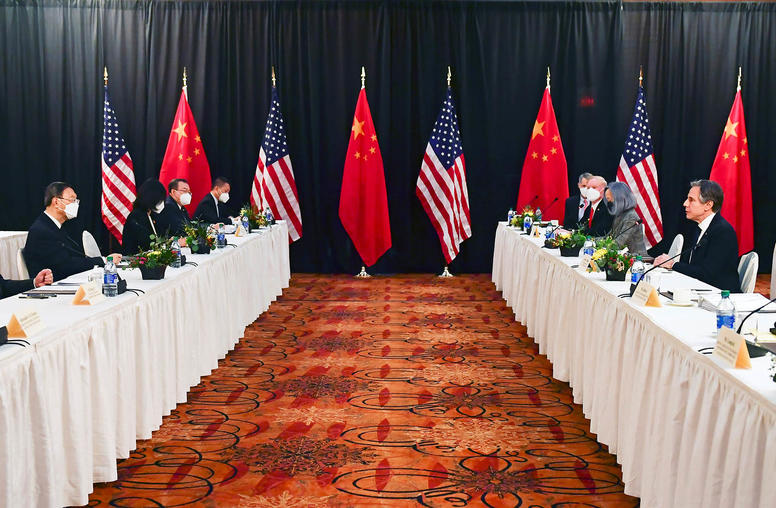
US-China Signaling, Action-Reaction Dynamics, and Taiwan: A Preliminary Examination
The United States and China have found it challenging in recent years to interpret one another’s foreign policy signals vis-à-vis Taiwan. Misinterpretation of the signaling may contribute to a cycle of actions and reactions that can inadvertently elevate bilateral tensions to the point of crisis or even war in the Taiwan Strait. This report, co-authored by three USIP experts and three experts from China’s Shanghai Institutes for International Studies, examines the challenges to clear and unambiguous US-China communications over Taiwan and provides preliminary recommendations for overcoming them.
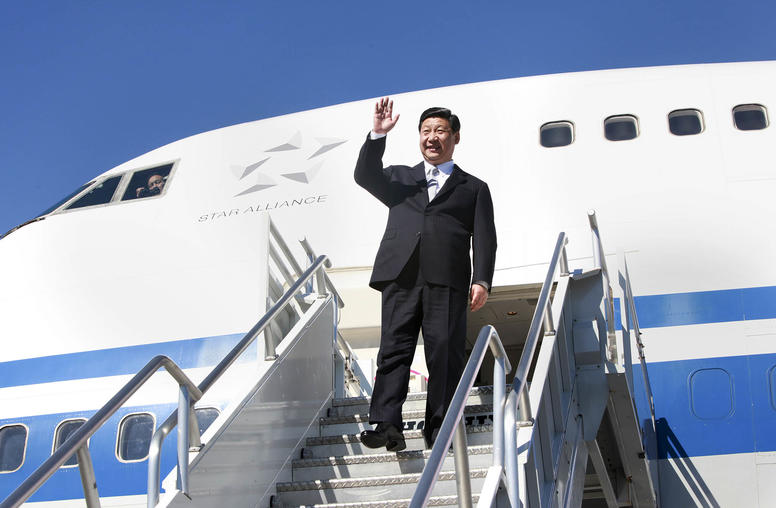
Will Xi or Won’t Xi: Is China’s Leader Heading to Saudi Arabia?
Last month witnessed considerable media speculation that Chinese leader Xi Jinping would soon visit Saudi Arabia in what would be his first trip overseas in two and a half years. However, this trip has yet to materialize. As the recent visit by a senior U.S. congressional leader to Taiwan reminds us, not every high-level government visit is necessarily publicly announced ahead of time. While it appears that Xi will make his first foreign trip since the onset of COVID-19 pandemic for the Shanghai Cooperation Organization (SCO) meeting in Uzbekistan on September 15, it’s worth exploring what these swirling rumors of an imminent Xi trip to Riyadh mean.
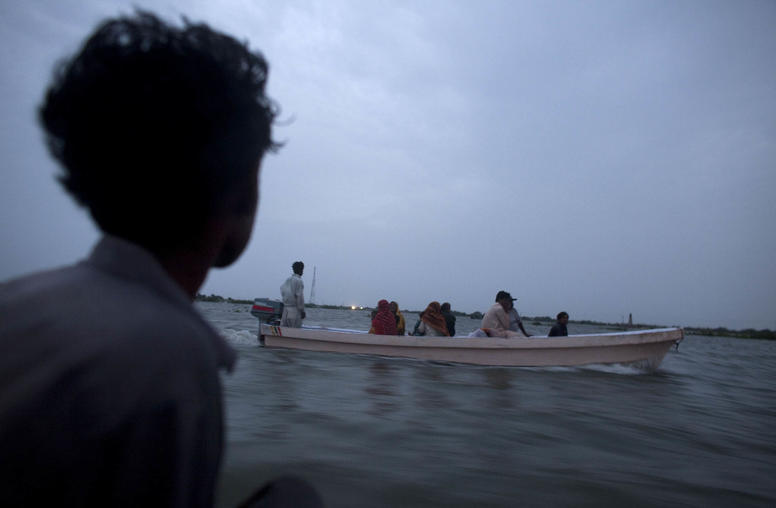
Why Pakistan Is Drowning
Pakistan is currently experiencing one of the worst environmental disasters in the world. One-third of the country is under water. Over 1,325 people have died and 33 million have been impacted. The latest statistics show that over 1,600 have been injured, 325,000 homes destroyed, 735,000 livestock lost and 2 million acres of crops damaged — numbers which are likely to increase. According to a rough assessment by Atlantic Council’s Uzair Younus and economist Ammar Khan, the direct damage to roads, homes, livestock and crops is over $3 billion, which is an astronomical amount for a developing country like Pakistan.
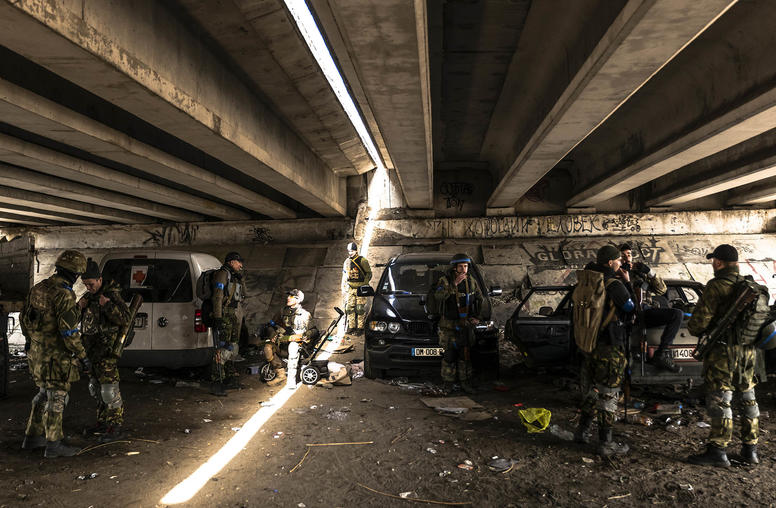
Central Asia’s New Foreign Fighters Problem: The Russia-Ukraine War
Since the start of the current conflict in Ukraine, there have been growing glimpses coming through media reports, social media feeds and personal networks of Central Asian mercenaries and volunteers fighting on both sides of the Russia-Ukraine war. But the emergence of this new foreign fighter phenomenon — less than a decade after thousands of Central Asians joined ISIS in Iraq and Syria — is raising increasing concerns and important questions for Central Asian security. Unlike the phenomenon of Central Asians fighting in Iraq and Syria, the cleavages in Ukraine are much closer to home and echo those in Central Asian society, which makes this mobilization much more divisive internally.
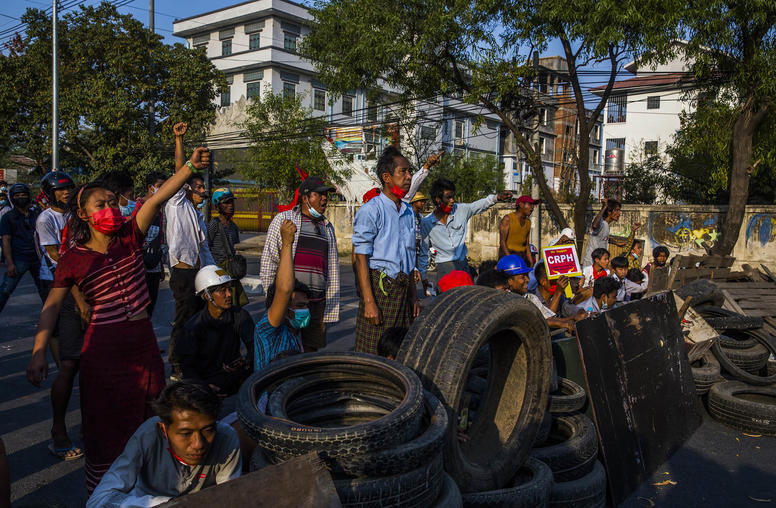
To Build a Unified Resistance and Democratic Myanmar, Discrimination Must End
Early on the morning of Myanmar’s February 2021 coup, Mya Aye, a prominent Muslim activist, was one of the first arrested by the new junta regime. Since then, thousands more have been imprisoned or killed by the regime, including dozens of Muslims, like prominent student leader Wai Moe Naing, and other marginalized minorities who have fought against the military junta alongside other ethnic and religious groups. Although the resistance shares a common enemy in the brutal junta, it has yet to fully embrace a vision for a more inclusive country that overcomes Myanmar’s legacy of ethnic and religious discrimination. To broaden its base of support domestically and internationally, resistance leaders should commit to address structural discrimination against minorities in Myanmar.

Sarhang Hamasaeed on Iraq’s Deepening Political Stalemate
After recent episodes of violence, Iraq’s political stalemate continues. “Bottom line … this is a fight over power” and differing views on foreign influence, says USIP’s Sarhang Hamasaeed. “The Iraqi people are actually fighting for democracy. It is just the political class … that makes that a longer fight.”
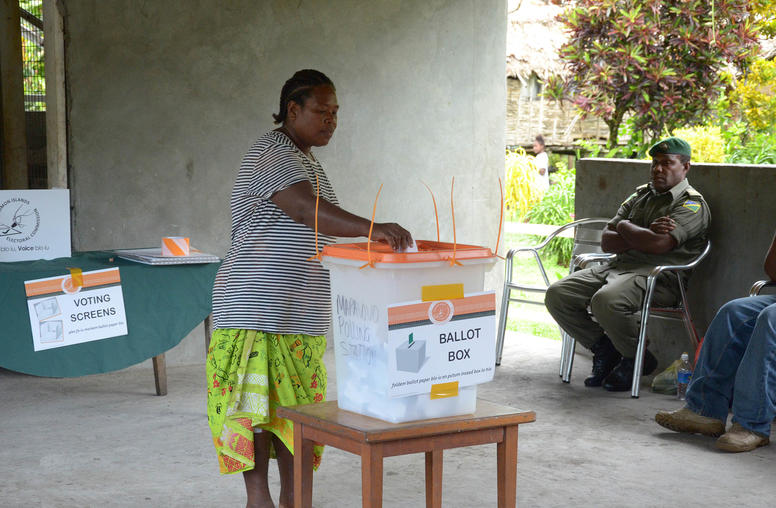
Solomon Islands: Election Delay Would Threaten Peace and Democracy
Solomon Islands Prime Minister Manasseh Sogavare is attempting to delay the 2023 elections — which would normally take place between May and August — to 2024, causing concerns among civil society and regional partners regarding the country’s growing autocracy and ties to China. Delaying the vote is broadly unpopular and could spark protests. Some Solomon Islanders fear that Sogavare may use Chinese security forces to crack down on protesters, which would fuel further instability. Postponing the election may also set a dangerous precedent for the future, allowing Sogavare to further solidify his power.